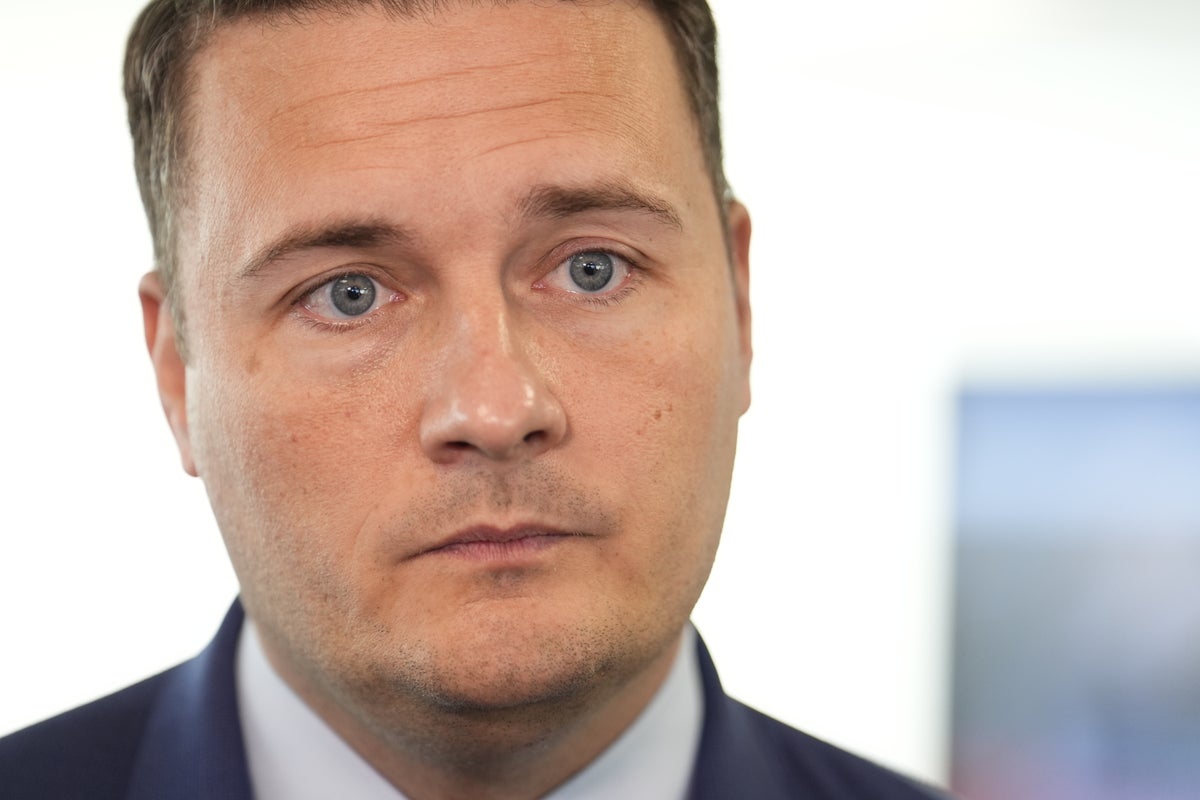Patients needing NHS gender care face a 42,000-long waiting list, with some waits as long as eight years, health secretary Wes Streeting has revealed.
Mr Streeting has vowed to address the “unacceptable” waits for tens of thousands of people needing access to NHS adult gender dysphoria services, The Independent can reveal.
At a speech for the NHS England LGBT+ Health Annual Conference in London on Monday, the health secretary will say: “Evidence shows trans people have higher rates of mental health conditions, including depression, when compared to the general population. Longer wait times only steepen this pain.
“Over 42,000 people are still waiting, often for years, for their first appointment at adult gender dysphoria clinics. That’s 42,000 people who are hurting, anxious, and exhausted.
“This breaks my heart…42,000 or more individuals should not be feeling invisible, misunderstood or unsupported.”
A new pilot scheme in the Southwest will be given £125,000 to help patients on the waiting list by providing more information to patients before appointments and mental health support.
In this area of England, there are around 5,000 patients waiting up to eight years, according to the Department for Health and Social Care.
In London, patients referred to services run by The Tavistock and Portman NHS Trust, face a waiting list of more than 16,000, and first appointments are only just being offered to those referred in March 2020, according to the trust website. The organisation states it receives around 300 referrals a month.
Patients in the North of England are waiting almost seven years, according to Cumbria, Northumberland, Tyne and Wear NHS Foundation Trust.
If the South West pilot is a success, the DHSC said it will roll out it nationally, the DHSC said.
Speaking at the conference, Mr Streeting will also say: “When I was growing up, I knew how it felt to keep part of myself hidden, scared of the judgment of others. To be bullied just for being me.
“I was lucky. I had a network of friends, family and organisations who loved and supported me for who I was.
“Having the confidence to be ourselves is as important as the confidence to express concerns about our own physical and mental health.
“And when who we are is so intimately linked to how we feel, safe spaces and understanding ears are what we need most.
“So, it is personally upsetting to me, and I am sure to anyone reading this, that LGBT+ people still face worse health outcomes than other population groups.”
He said people on waiting lists for gender services will also be able to access online cognitive behavioural therapy through the NHS’s Silvercloud service.
A national review of adult gender dysphoria clinics, led by Dr David Levy, is being carried out following concerns raised by Dr Hilary Cass, who led the Cass Review into gender services, about adult services.
The review is looking into how the services operate, areas of concern, and action being taken to improve services.
In a statement ahead of the pilot announcement, Mr Streeting said: “It is fundamentally wrong that so many LGBT+ people still face challenges when accessing healthcare – including barriers such as discrimination, misunderstanding, and miseducation…
“This pilot marks a major step – acknowledging the unacceptable waits endured by thousands of transgender patients and starting to tackle it head on.”
Following a Supreme Court ruling ruled the terms “woman” and “sex” in the 2010 Equality Act “refer to a biological woman and biological sex”, controversy over the mixing of genders on NHS wards broke out.
Responding at the time, Mr Streeting said the NHS should provide single sex wards to patients, based on biology; however suggested the health services could treat trans patients in private rooms
Professor James Palmer, NHS England national medical director for specialised services, said in relation to the pilots: “We know there are unacceptably long waits for many of these services.
“This is why we have commissioned an independently led review into the operation and delivery of the adult gender dysphoria clinics, alongside work we have already undertaken to introduce new care models that are making significant progress in helping to bring down these very long waits.”


